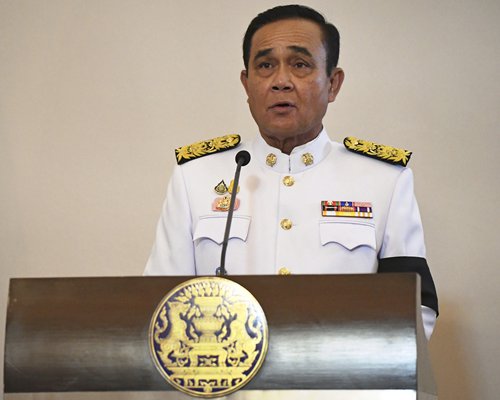HOME >> OPINION
Uncertainty in Thailand won’t stand in the way of cooperation with China
By Ge Hongliang Source:Global Times Published: 2019/6/13 20:43:40

Photo: IC
On the evening of June 5, current Thailand's Prime Minister Prayut Chan-o-cha was elected the country's next prime minister by members of the Lower and Upper Houses of Parliament. What course will Sino-Thai cooperation take as Prayut starts a fresh term in office? In my view, Sino-Thai cooperation during the Prayut administration will depend on how the Southeast Asian nation's polity looks at relations with China.
Friendly and pragmatic Sino-Thai cooperation, which has historical roots, is also based on realistic demands. Currently, there is interest within Thailand advocating cooperation with China over political security and development.
Talking of political security, with strong mutual trust, China and Thailand have made strides in political dialogue and security cooperation under the comprehensive strategic cooperative partnership. For Thailand, developing good relations with China in the field of political security on the one hand is based on domestic demand, including national development and defense; on the other, it shows the adoption of equilibrium strategy among major powers. Promoting cooperation with China has become an important way for Thailand to balance its position in ties with the US.
As for economic development, strong relations with China have been of great practical significance to all previous Thai governments, and the Prayut administration will be no exception. In recent years, especially since China's trade frictions with the US, the Thai economy hasn't been upbeat. Latest data shows that due to slow growth in exports and tourism, Thailand's GDP increased by 2.8 percent in the first quarter of 2019, marking the lowest rate of growth since the fourth quarter of 2014.
Under such circumstances, Prayut is bound to come under pressure to boost the economy and fulfill his promises, including that of improving the state's economic situation and raising the minimum wage. Therefore, the new Prayut government will not loosen economic ties with China.
Instead, Bangkok will consider more about strengthening economic relations and attracting more Chinese enterprises to invest and participate in the development of long-term projects in the Southeast Asian nation such as the Eastern Economic Corridor under the Thailand 4.0 industrial plan and digital economy development.
People of China and Thailand share similar social and cultural backgrounds, and enjoy long-term friendly contacts. In the new era, cultural exchanges between the two states have received a boost from a series of frameworks like Belt and Road Initiative (BRI) cooperation and Lancang-Mekong Cooperation mechanism. Bilateral cooperation in culture, language teaching, tourism and youth exchanges can expect brighter prospects.
Different voices on promoting ties with China can be heard in Thailand. First, the new political situation will have a profound impact on bilateral cooperation during Prayut's new term of office. Symbolized by the March 24 general election this year, Thai politics has shown two distinct characteristics: For one, there's sharp division between the camp led by the Palang Pracharath Party (PPP) with Prayut as the representative and the camp led by the Pheu Thai Party (PTP); the other is the rift in the House of Representatives of National Assembly of Thailand after the election. Under such circumstances, widespread uncertainty pervades Thailand's domestic affairs.
Second, influenced by Western media's hype on the uncertainties that the BRI may bring, coupled with the inappropriate behavior of some Chinese tourists in Thailand, the attitudes of some Thai people on China have been negatively affected.
In view of the aforesaid points, during Prayut's new term, China and Thailand will not only keep cooperating in the fields of political security and economic development, but also have to face the challenges brought about by the new situation. Therefore, the two countries should strengthen coordination while maintaining dialogue, and highlight the pragmatic and mutually beneficial feature of joint projects, so as to lessen the impact on bilateral cooperation caused by looming uncertainty of Thailand's internal affairs.
The author is a research fellow at the Charhar Institute and the College of ASEAN Studies at Guangxi University for Nationalities. opinion@globaltimes.com.cn
Posted in: ASIAN REVIEW